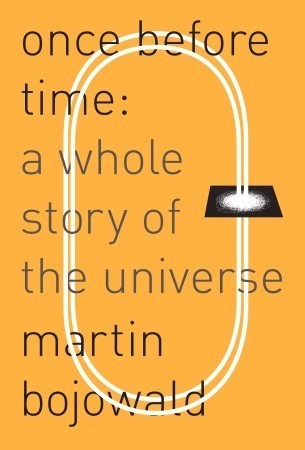What do you think?
Rate this book


309 pages, Hardcover
First published April 1, 2009
Una revolucionaria teoría sobre el origen del universo y qué pasó antes del Big Bang. En su conocida obra Historia del tiempo, Stephen Hawking afirmaba que preguntar qué había antes del origen del universo es tan absurdo como preguntar qué hay al norte del polo Norte. Desde Einstein, el Big Bang era la última frontera que ningún físico se atrevía a cruzar. Incluso para la teoría general de la relatividad ese punto ha sido considerado una singularidad que no se puede calcular y cuyas reglas físicas no están definidas. Es el punto en que comienza para nosotros el universo. Pese a todo ello, seguimos haciéndonos las mismas preguntas: ¿Qué había antes del Big Bang? ¿Cómo nació el universo? El joven físico Martin Bojowald da respuesta gráficamente y sin fórmulas. Sus asombrosos descubrimientos sobre un mundo desconocido y emocionante, con tiempo negativo, inversión de la orientación espacial y un cosmos que se contrae para expandirse después del Big Bang actualizan viejos modelos cosmológicos sobre los ciclos de expansión y colapso del universo. Reseña:«Bojowald consigue lo que Einstein y sus sucesores no consiguieron: llegar al punto temporal cero.»Wissenschaft im Brennpunkt